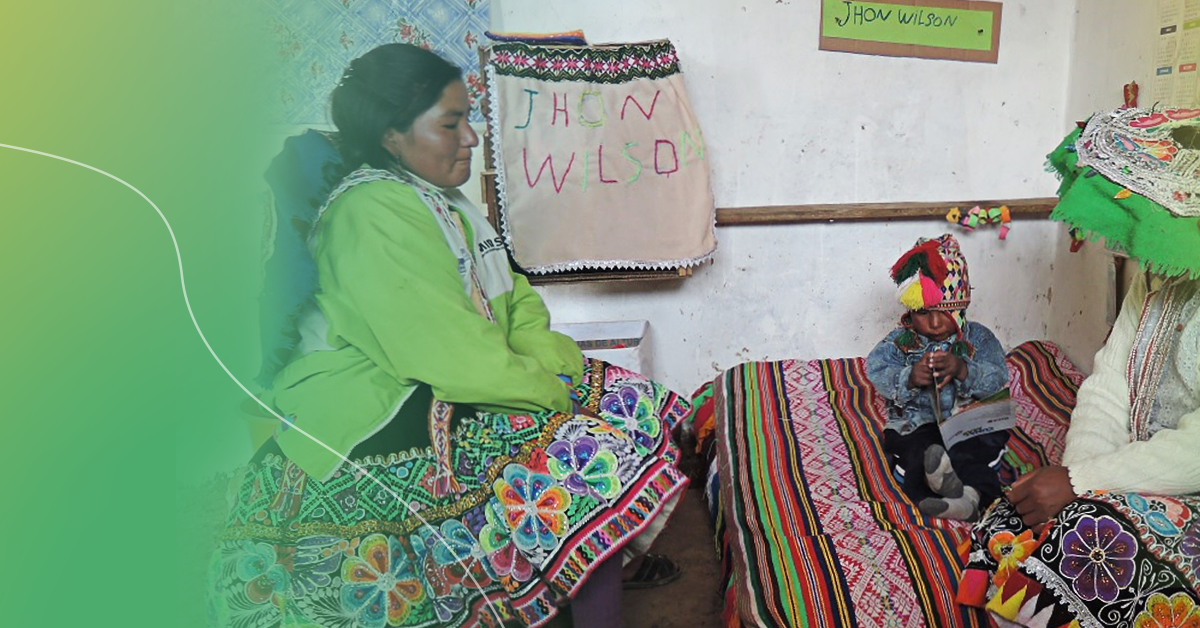Early childhood development (ECD) programs play a crucial role in promoting children’s cognition and language. Many programs include home visitors or groups who work with parents and young children through play activities that not only build children’s language and cognitive skills, but also engage children and parents together to experience the joy of playing and learning together. As efforts to scale up these programs continue, it is essential to understand the implications of the size of the program on its effectiveness and implementation strategies. In this blog post, we delve into the findings from a meta-analysis of the Reach Up program, based on the Jamaican home visiting program, recently published in the Special Supplement Promoting Childhood Development Globally Through Caregiving Interventions at the journal Pediatrics. We also explore the enablers of success at scale, shedding light on the complexities involved in achieving both quantity and quality.
Quantity-Quality Trade-off
The meta-analysis examined 18 programs of varying sizes, ranging from small efficacy trials to large-scale implementation efforts in countries like China and Peru.
The pioneering Cuna Mas Program in Peru serves as a prime example of creating an ECD program from scratch. Drawing inspiration from Reach Up, the Inter-American Development Bank promoted the use of local staff and worked with the government to adapt the intervention to suit the diverse needs of Peru. Over a span of three years, by the time of the follow-up of the impact evaluation, Cuna Mas’ home visiting program successfully reached over 67,000 vulnerable families in rural areas.
Significant impacts on cognition and language were observed in rural Peru and in the China REACH program, which served over 1,500 participants in an impoverished region of Western China. When compared to other smaller scale experiences in the meta-analysis, an interesting observation emerged: programs that reached a larger number of children were just as beneficial as programs that targeted a small number of children (<300).
This suggests that significant impacts on populations of children can be attained as programs increase in size. Yet, effect sizes do tend to be smaller as the number of children reached increases, which shows that there is a quantity-quality trade-off.
Challenges of Scaling
Scaling up a program involves not only reaching more children but also considering geographic dispersion. Serving remote and harder-to-reach areas presents challenges that may lead to lower program dosage than intended or reduced program quality. Ensuring regular support to home visitors becomes more difficult as scale increases, potentially compromising fidelity to the original intervention. Additionally, larger scale implementation introduces greater heterogeneity in facilitator characteristics and the quality of implementation, as observed in Cuna Mas or in the FAMI program in Colombia.
Expanding coverage through a feasible implementation strategy that maintains sufficient quality highlights the importance of striking a balance between scale and fidelity to ensure sustained positive outcomes on children’s development.

Enablers of Quality and Success at Scale
a. Invest in the Workforce:
Recognizing the critical role of home visitors and group facilitators, investing in their training, ongoing support, and mentoring is essential. Well-trained and well-supported staff are more likely to generate behavioral changes in parents, leading to improved intentional caregiver-child interactions and play. Moreover, adequate compensation and recognition contribute to staff motivation, reducing turnover rates that can undermine the impact of training investments.
b. Adapt to the Cultural Context:
Structured content, such as play activities and toys that promote ‘scaffolding’—namely, structured support to achieve increasingly difficult tasks—serve as effective tools for home visitors and families. However, considering that child development is complex and influenced by the environment, adapting these materials to fit the local culture is crucial. Contextualizing the content enhances its appropriateness and ensures that interventions are embraced and valued within the community.
c. Flexibility and Compromise:
Navigating the institutional context requires flexibility and compromise. In some situations, there may be a need to accelerate the pace of program introduction or expand rapidly to seize opportunities. Limited human resources may necessitate considering larger family-to-home visitor ratios or shorter training times. Making informed compromises, trying to prioritize quality over quantity, is vital to ensure the best possible outcomes.
d. Experimentation and Rapid Feedback:
To make well-informed compromises and adjustments, attention must be given to implementation processes. Shifting the focus from measuring outcomes towards understanding implementation through rapid, lower-cost evaluations generates timely feedback, allowing for quick adjustments during program design. This approach facilitates continuous learning and improvement as interventions are scaled up.
As countries strive to ensure that their children are thriving, understanding the dynamics of scale becomes paramount. The meta-analysis and the insights presented emphasize the existence of a quantity-quality trade-off. Balancing scale and quality require investment in the workforce, adaptation to cultural contexts, flexibility and continued monitoring and support of quality as programs expand.
How do you believe we can effectively invest in the workforce, adapt to cultural contexts, and embrace flexibility to ensure the best possible outcomes? Leave a comment below and join the conversation!


Leave a Reply